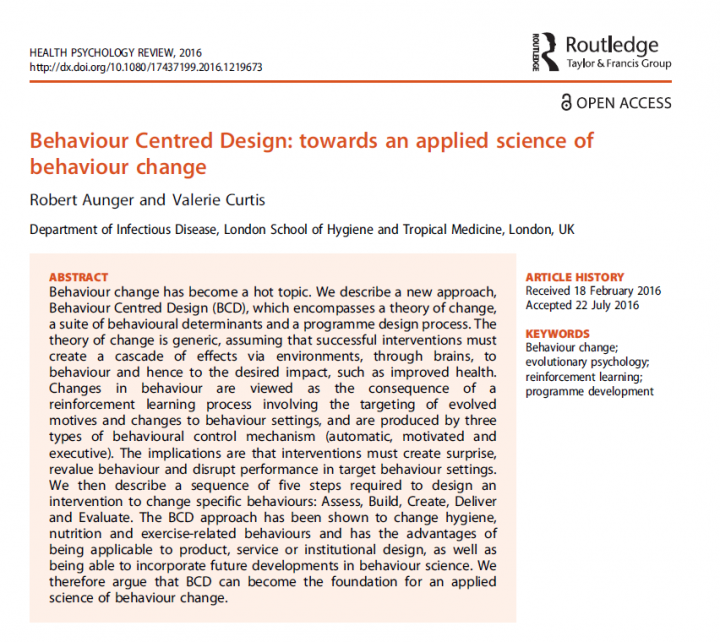Behaviour Centred Design: towards an applied science of behaviour change
Aunger, R., Curtis, V. (2016)

Published in: 2016
Pages: 23
Publisher:
Health Psychology Review
Author:
Aunger, R., Curtis, V.
Uploaded by:
SuSanA Admin
Partner profile:
common upload
3620 Views
53 Downloads
Content - Summary
Behaviour change has become a hot topic. We describe a new approach, Behaviour Centred Design (BCD), which encompasses a theory of change, a suite of behavioural determinants and a programme design process. The theory of change is generic, assuming that successful interventions must create a cascade of effects via environments, through brains, to behaviour and hence to the desired impact, such as improved health. Changes in behaviour are viewed as the consequence of a reinforcement learning process involving the targeting of evolved motives and changes to behaviour settings, and are produced by three types of behavioural control mechanism (automatic, motivated and executive). The implications are that interventions must create surprise, revalue behaviour and disrupt performance in target behaviour settings. We then describe a sequence of five steps required to design an
intervention to change specific behaviours: Assess, Build, Create, Deliver and Evaluate. The BCD approach has been shown to change hygiene, nutrition and exercise-related behaviours and has the advantages of being applicable to product, service or institutional design, as well as being able to incorporate future developments in behaviour science. We therefore argue that BCD can become the foundation for an applied science of behaviour change.
Additional information
DOI: 10.1080/17437199.2016.1219673
Bibliographic information
Aunger, R., Curtis, V. (2016). Behaviour Centred Design: towards an applied science of behaviour change. Health Psychology Review
Filter tags
Behaviour change (WG13)















